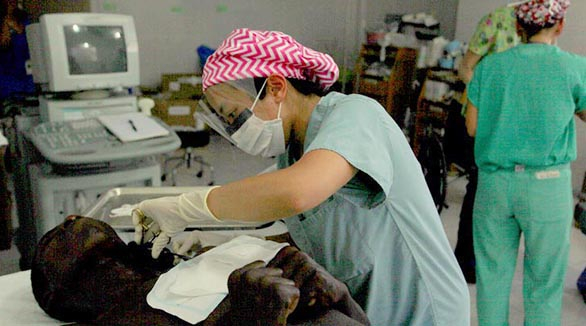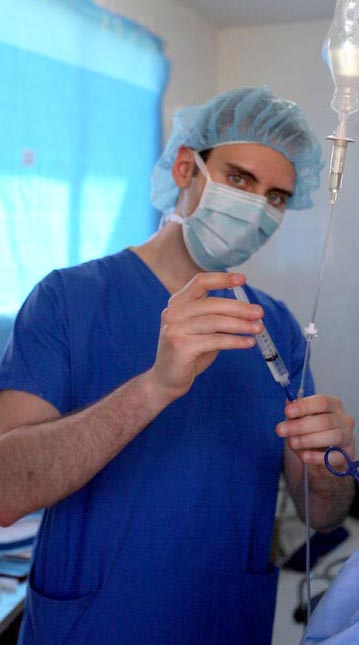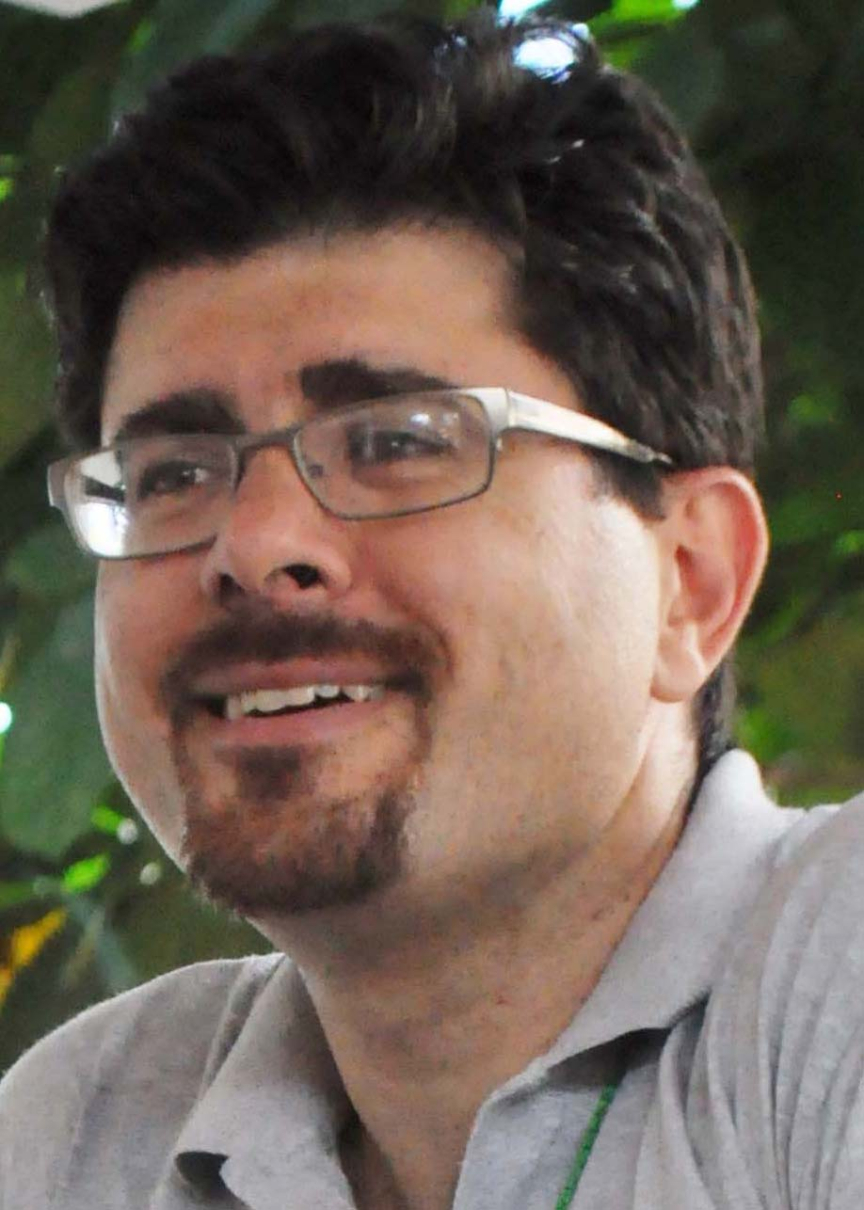Learning Surgery in Haiti
Rutgers medical students' initiative leads to their first international surgical mission

'They have gone way above and beyond what our expectations were when they started the club.We certainly could not have dreamed that they would be participating in surgeries now.'– Ziad Sifri, NJMS surgeon and ISHI co-founder
Fourth-year medical students Christine Mau and Chris Ojeda recently found themselves in Haiti carrying out a series of medical tasks – opportunities unavailable to them back home – as part of an international team that performed 46 general surgeries over five days.
It was an intense, exhilarating week for the New Jersey Medical School (NJMS) duo, who’ve long demonstrated a special interest in assisting populations in underdeveloped countries. They returned euphoric about their contributions, Ojeda having served primarily as an anesthesiologist’s assistant and Mau as a patient evaluation physician and a triage physician – the lone students on an 18-member mission from the International Surgical Health Initiative (ISHI).
“It reminded me of why you go into medicine in the first place, to help people,” Ojeda said. “We were dealing with the issues together, all responsible for the mission.”
Mau, who is planning to become a neurosurgeon, was struck immediately by the respect the rest of the team offered the future physicians. “They abolished any hint of a hierarchy right away,” she says. “We were all told to call everyone by our first names. At first, that was difficult.”
Teamwork, Respect and Confidence
Very early in the mission, as Mau sought reassurance for post-surgery medication she was prescribing, Ziad Sifri, an NJMS associate professor of surgery and the students' primary mentor, encouraged her to trust her instincts and the training she’s had. “You’re going to be a physician in six months,” Mau recalls Sifri saying. “It was a lot more autonomy than I’ve ever had.”
Her week’s single biggest challenge was treating and suturing a neck laceration on an accident victim. Mau’s taking on the case, under an attending physician’s supervision, reflected the limited resources and the surgeons’ confidence in the students’ capabilities.
For most of the week, Ojeda was responsible for anesthetizing patients by spinal block and continuing pharmacological sedation. “It’s something that’s usually done by resident anesthesiologists,” says Ojeda, who aspires to be an emergency medicine physician.
While the pair prepped patients and helped manage their care, two teams conducted simultaneous surgeries, from morning to night, for hernias, lipomas (benign fatty tissue growths) and hydroceles (an accumulation of fluid around a testicle, common among men in hot climates), marking the first time that any surgeries, beyond childbirth, were performed at H’opital Convention Baptiste D’Haiti in Cap-Haitien.
Growth of ISHI Club

For nearly four years, Sifri, ISHI’s co-founder, has nurtured the students’ interest in learning how to help countries desperate for physicians and resources. As second-years, Mau and Ojeda founded the NJMS ISHI Club after learning that Sifri and his ISHI colleagues in the United States and Canada lead surgical missions to regions where physicians and healthcare resources are so limited that the mission teams usually must bring their own “operating rooms” with them. For their mission to Haiti, where the countrywide ratio is approximately one physician for every 4,000 people, the team shipped 18, 50-pound boxes of instruments and materials.
Though the ISHI club’s activities continued to evolve as the students ramped up their knowledge, neither they nor Sifri anticipated that their resolve and commitment would land them on a mission before they finished med school.
“They have gone way above and beyond what our expectations were when they started the club,” says Sifri, “We certainly could not have dreamed that they would be participating in surgeries now.”
In addition to the surgical experience, the pair returned from Haiti with a greater appreciation of the healthcare needs in underdeveloped countries and the importance of teamwork, particularly under challenging circumstances. “They each did a wonderful job,” Sifri said. “Their contributions were invaluable. I’m proud that we can offer them such a wonderful opportunity to learn and broaden their perspectives.”

As second- and third-year students, Ojeda and Mau sparked the ISHI club’s significant growth. Initially, club learning activities focused on experts’ lectures on global health and international surgery issues. Later, the club explored the complex logistics of planning and executing missions, and more recently it began fund raising activities to support the purchase of mission supplies. Mission participants pay their own airfare, room and board.
Largely as a result of the determination and leadership Mau and Ojeda have demonstrated, the ISHI club has now become a non-credit elective course and a pathway to developing hands-on learning opportunities as Mau and Ojeda experienced on their initial mission.
“Probably most significant, they will now become spokesmen to inspire other students in the club to go on missions,” says Sifri. “They learned what a mission involves. They learned character-building, self-confidence and opened their eyes to a new world. They learned that what it takes often does not get taught in lectures.”